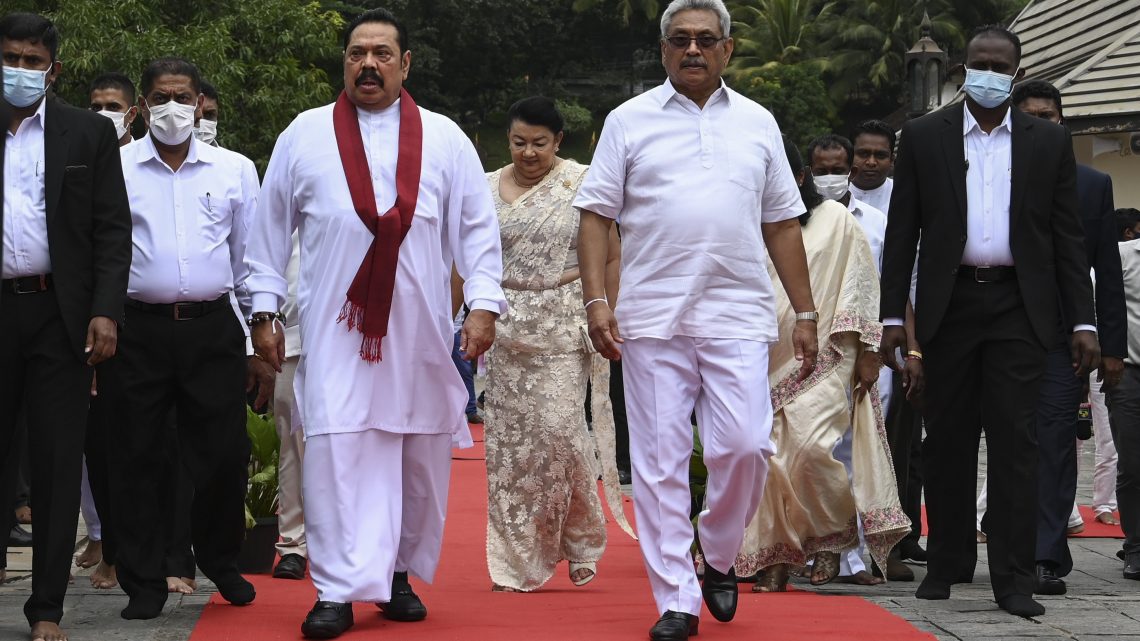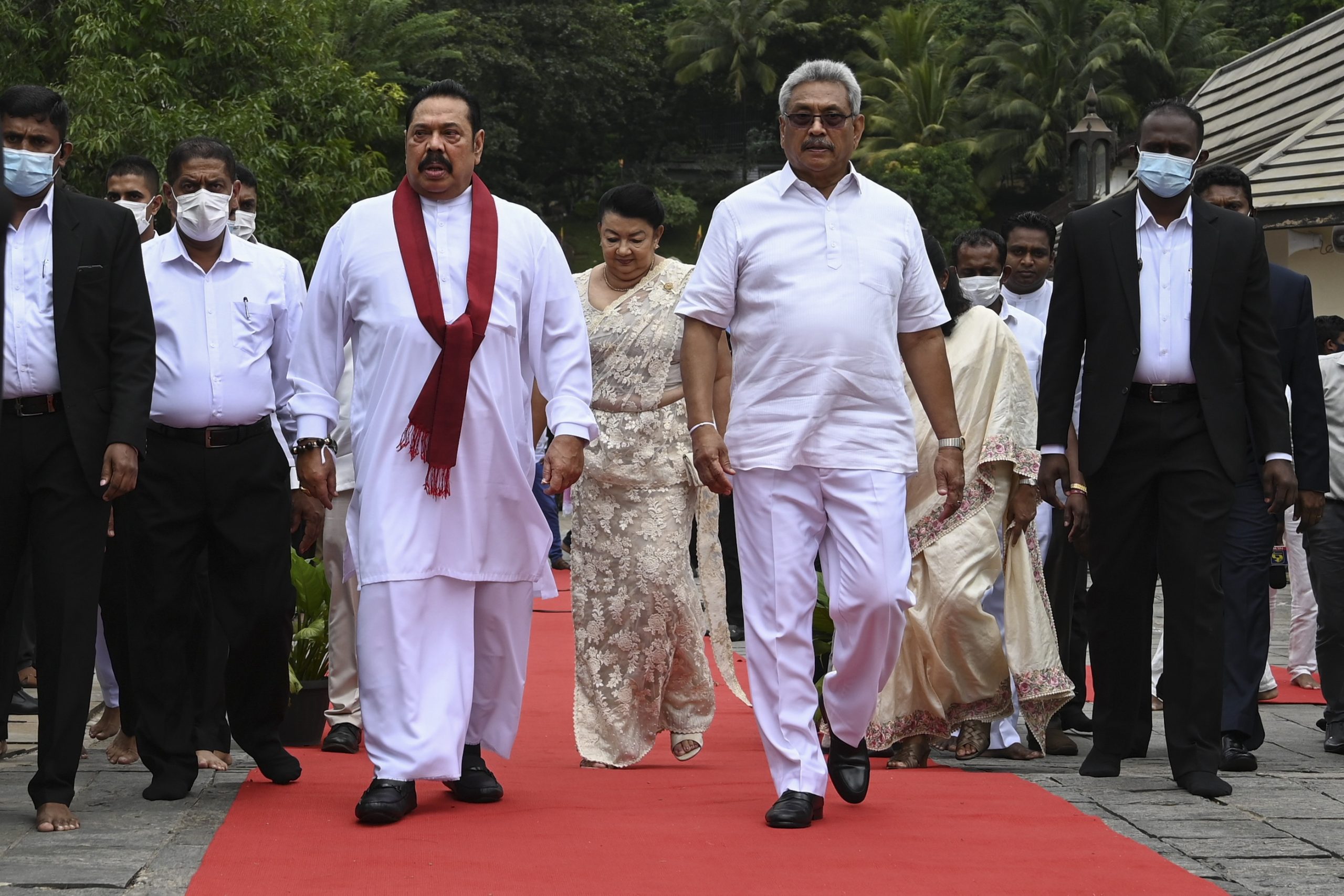
Sri Lanka’s ‘Terminator’ Government is Driving Journalists Out of the Country
August 21, 2020Lokeesan Appuththurai remembers his horror when military personnel called out his name at a refugee camp in Vanni region, in the northern province of Sri Lanka. It was 2009, right in the middle of the civil war between the Sri Lankan Government and the Liberation Tigers of Tamil Eelam (LTTE), a Tamil insurgent group.
“Lokeesan the reporter, we know you are here,” they said on the camp loudspeaker.
The civil war was a result of a long history of disenfranchisement among minority Tamils by the Sinhalese Buddhist majority. It lasted almost three decades, and involved brutal military campaigns, mostly against the Tamils. The United Nation’s conservative death toll estimate from the war is 40,000.
The Sri Lankan government headlined a “zero civilian casualty policy”, but Appuththurai documented deaths every day for his news website, Tamilnet. “The government did not like it,” he told VICE News. Within days after security forces called out his name at the camp, Appuththurai escaped to India, and stayed on an expired visa and passport for over a year, before escaping to Oslo, Norway, at the end of 2010.
Now, Appuththurai says dangers for journalists in Sri Lanka have heightened further. “I can’t specifically name anyone because of the risks they operate with, but it’s even more dangerous to be a reporter in Sri Lanka.”
Multiple journalists told VICE News that while the war ended in 2009, journalists continue to face threats and assaults under the current regime. And it has only gotten worse. Modern day Sri Lanka ranks 127 out of 180 countries in the latest global press freedom index.
The Committee to Protect Journalists (CPJ), has documented the surge in violence and intimidation against journalists since 2019.
“Reporters said sensitive topics [that are dangerous to report on] included the army, human rights violations, missing peoples, land-grabbing, political corruption, and the Rajapaksa family,” noted the CPJ report.

Aliya Iftikhar, senior Asia researcher from CPJ, told VICE News that the climate of fear has increased as has self-censorship due to the harassment and intimidation journalists are facing. “They have been summoned for questioning, surveilled, faced physical attacks as well as received death threats,” she said.
Earlier this month, human rights watchdog Reporters Without Borders (RSF) and 10 other human rights organisations flagged the Sri Lankan government's “campaign of fear” against journalists, activists, human rights defenders and lawyers.
On August 5, when Sri Lanka democratically elected its Parliament, it clinched the strong grip of the political dynasty of the Rajapaksas. Mahinda Rajapaksa, who previously served a two-term presidency from 2005-2015 during the civil war, is the prime minister. Gotabaya, who crushed the Tamil separatist movement as a military general, is now the president.
The CPJ documented at least two journalists going into exile since the 2019 November election. The watchdog also documented 19 deaths and one disappearance of journalists since 1992.
Bashana Abeywardane, a Sri Lankan journalist who went into exile in 2006, told VICE News that at least 70 journalists fled the country between 2006 and 2011.
“You have only two options if you want to live and report in Sri Lanka,” said Abeywardene. “Toe the line and submit, or do what you want to and pay the price. There are too many victims who did.”
Abeywardane himself left after being branded a “traitor” by government officials for his open opposition to the war in his weekly columns. In 2009, he founded Journalists for Democracy in Sri Lanka (JDS), a media rights organisation. It has provided guidance and assistance in over 50 cases of media workers leaving the country so far.
A report by the human rights non-profit International Truth and Justice Project and JDS has documented at least 69 incidents of intimidation and threats to journalists, human rights defenders and dissidents in 2019. The number, said the report, is most likely a fraction of the total number of incidents.
Political analysts say that under Gotabaya, the militarisation of civilian institutions is intensifying. Many serving and former military officers are being appointed for key bureaucratic posts and creating presidential task forces to take over governance matters. On August 14, the government appointed former Navy commander Admiral Jayanth Colombage as the new Foreign Secretary.
“With rising authoritarianism, the first thing the Rajapaksas is doing is to close the political space where dissenting opinions would emerge,” said Abeywardene.
Gotabaya is also known by the popular moniker, “The Terminator” for crushing the separatist movement. His military operation brought allegations of authorised torture, rape, extrajudicial killings, abductions and disappearances of Tamil separatists, journalists and dissidents.
After the war, a Criminal Investigations Department (CID) report identified the role of a top-secret death squad for the disappearances, torture and killings. Called Tripoli Platoon, the squad was allegedly responsible for abducting journalists in white vans and then killing them. The operation earned Gotabaya another nickname: “White van commando”.
Going by past violence, the apprehension on the ground is palpable. “Journalists are anticipating that what the Rajapaksas did before, will just escalate more now,” Amalini De Sayrah, a Colombo-based communications professional, told VICE News.
Another journalist Dharisha Bastians, based out of Colombo who contributes to the New York Times, is facing an inquiry by the CID for a story she did on the abduction of a Swiss Embassy employee. Pro-government media reportedly conducted a campaign against the journalist and her family, calling her story false and labelling her a traitor and criminal.
On August 13, Keheliya Rambukwella, the Sri Lankan New Media Minister, said he would build an “independent and impartial media tradition.”
Media activists say that the data on killings and attacks against journalists might just not be the complete picture. “There are likely cases that go unreported out of fear of further retaliation,” said CPJ’s Iftikhar. She added that whatever information is out there still gives an idea of the longstanding impunity around those attacks.
Exiled journalists are not sure if they will ever be able to report freely. Lokeesan Appuththurai told VICE News he still holds accounts of the war that are not published yet. “It could be a part of a book one day. But I know the government will not be pleased with it,” he said.
Abeywardene said that more journalists will be compelled to take the risk in the days to come—of escaping and living in limbo with expired visas and passports in various countries before they migrate to safer countries.
“Writing in exile gives you the alternate political space, without paying the price that comes with it,” he said.
Follow Pallavi Pundir on Twitter.


